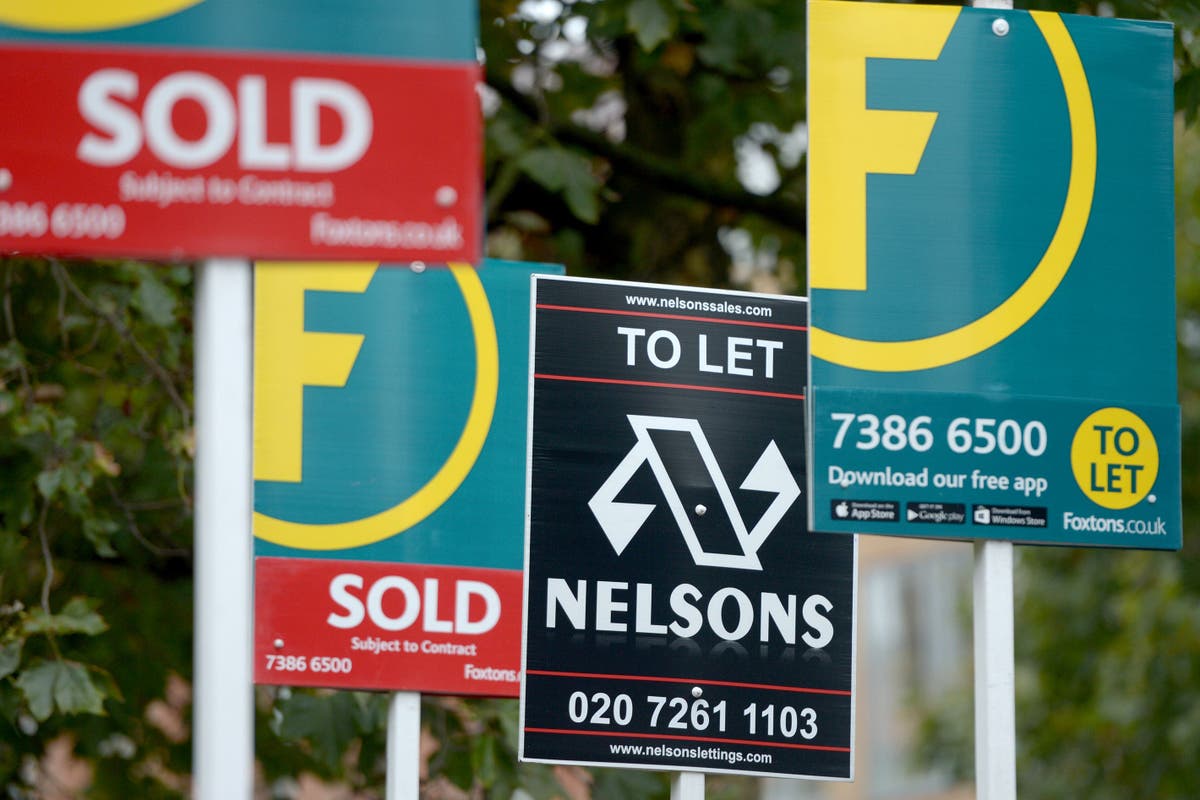With rates of interest nonetheless sky-high and the price of residing disaster removed from over, potential home consumers could also be contemplating upping sticks and shifting to a special space of the nation to get a struggling leg onto the property ladder.
Whereas costs in London and south-east England stay unattainable for a lot of first-time consumers, there are a number of areas throughout the nation the place properties are extra inexpensive and will attraction to those that are ready to relocate.
North-east England stays probably the most inexpensive a part of the nation to purchase a house within the UK, in keeping with Halifax’s newest home worth index. Shopping for a property there’ll set you again on common £172,538.
Northern Eire was the second most inexpensive area of the UK, with the typical worth there coming in at £192,502. Scotland was third, with the typical purchaser within the nation shelling out £204,579 for a property.
Halifax’s month-to-month worth index mentioned that the typical home rose by 0.1 per cent in April month-on-month, after a fall of 0.9 per cent in March. The constructing society mentioned typical home costs in early 2024 have “largely plateaued”.
Property values grew by 1.1 per cent yearly, accelerating from a 0.4 per cent rise recorded the earlier month, with the everyday UK dwelling costing £288,949 in April, in contrast with £288,781 in March, Halifax mentioned.
Unsurprisingly, London and south-east England stay the most costly areas to purchase in, at £539,336 and £384,972 respectively.
Lenders have in latest weeks begun rising mortgage prices as a result of analysts imagine the Financial institution of England will make fewer rate of interest cuts this yr as a result of stickier-than-expected inflation.
Barclays, HSBC, NatWest, Accord and Leeds Constructing Society have been amongst those that hiked charges on the finish of final month after ONS knowledge confirmed that inflation was 3.2 per cent in March – barely larger than the three.1 per cent predicted by economists.
At first of the yr cash markets predicted as many as 5 or 6 cuts to rates of interest, however now are anticipating as few as two, with some economists anticipating the primary lower to happen in June.
Regardless of the elevated value of shopping for a home, an estimate by property Savills revealed this week predicted that property costs would rise 2.5 per cent this yr – a dramatic reversal from its November forecast, which mentioned they might fall 3 per cent.
The FTSE 2050 firm mentioned it anticipated the housing market to maneuver quicker than beforehand anticipated due to rising confidence that mortgage charges would stay steady and steadily fall after latest rises.
Responding to Halifax’s newest home worth index figures, Amanda Bryden, the constructing society’s head of mortgages, mentioned that the housing market was “discovering its ft” in an period of upper rates of interest.
She mentioned that, regardless of elevated prices, homebuyers have been gaining extra confidence from a interval of “relative stability”.
“Our latest analysis additionally discovered that consumers are adjusting their expectations, with first-time consumers specifically compensating for larger borrowing prices by focusing on smaller properties,” Ms Bryden added.
“We see this mirrored in property costs for the primary few months of this yr, with the worth of flats rising most sharply, closing the ‘progress hole’ on larger properties that’s existed for a lot of the final 4 years.”
Halifax additionally estimated that costs would proceed to develop all through 2024.
Ms Bryden mentioned: “If, as continues to be anticipated, downward strikes in financial institution fee come into play later this yr, mounted mortgage charges ought to fall.
“Mixed with the resilience displayed by the housing market over latest months, we now count on property costs to rise modestly over the course of 2024.”








